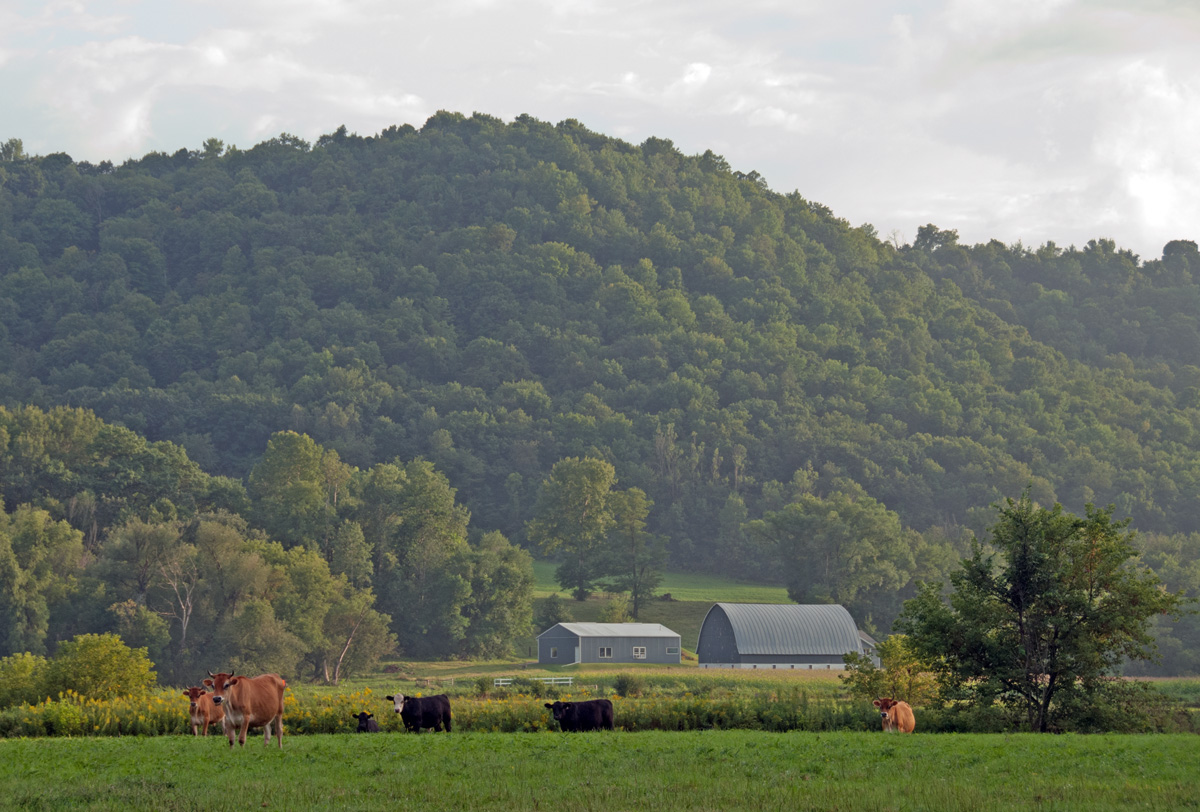Want to know what woody perennials to grow for the long-term health of your land and the region? Learn how to use ecological principles and considerations to manage your land, and see what some beginning growers are doing in the Kickapoo region.
Thursday, September 12, 2013, 8:30 am to 5:00 pm • Viroqua, WI
Participants will visit:
- a new ecotourism and retreat site that has plantings to benefit both people and wildlife;
- a family farm devoted to specialty food that uses permaculture principles and practices along with managed grazing of goats;and
- an elderberry on-farm research project inspired by work at the University of Missouri.
This workshop is designed for landowners with properties of all sizes who need a bit of inspiration and insight about how to get started, what is working on the ground, and what to plant in hedgerows, woodland edges and streambanks. Join us in exploring these three different locations and approaches to applying ecological principles to growing woody perennials in the Kickapoo region.
Course materials may be downloaded here, developed by presenters Marian Farroir, UW Arboretum and Regina Hirsch, UW Center for Integrated Agricultural Systems:
Registration fee: $40, which includes a box lunch from the Viroqua Food Co-op; or $30 and bring your own lunch.
Register using the form available on the CIAS website at www.cias.wisc.edu and send with payment to Michelle Miller at UW-Madison CIAS, Attn: Growing Woody Perennials in the Kickapoo Region, Ag Bulletin Building, 1535 Observatory Drive, Madison, WI 53706.
Contact Michelle with registration questions at mmmille6@wisc.edu or 608-262-7135.
For workshop questions, contact Marian Farrior: mlfarrior@wisc.edu, 608-265-5214.
Location: We will begin the day at Nature’s Nook: S4878 Cty. Rd. S, Viroqua, WI 54665.
Directions: From Viroqua, take Hwy 56 east to Hwy 82. Turn left on Hwy 82 and go to County
Road S. Turn right on S. Nature’s Nook is about 1/2 mile down County Road S on the left.
Draft agenda:
8:30-9:00 a.m.                 Welcome & introductions
9:00-9:45 a.m.                 Definitions, Principles of ecological gardening
9:45-10:30 a.m.               2 groups: 1) Small group discussion/Functions worksheet: What are the functions you want fulfilled on your land? What are your land’s needs, yields, characteristics? 2)     Tour at Nature Nooks
10:30-10:45 a.m.             Break
10:45-11:30 a.m. Â Â Â Â Â Â Â Â Â Â Â Â Small Group discussion /Tour at Nature Nooks
11:30-12 p.m.                   Lunch
12-12:30 p.m.                   Travel to Cullen and Micaela’s Long Arm Farm
12:30-2:30 p.m.              3 groups : 1) philosophy, context & background, plant selection, how to plant different species (sheet mulching, etc.), plant selection for hedgerows, what is working well, markets; 2) animals, chicken tractor and rotations, plants for fodder, cheese cave, markets; 3) plant varieties, plant selection, propagation, what to grow along riparian zones & edges, sun/shade, guilds, juglones tolerant plants
2:30-3:00 p.m.                 Travel to Mike Breckel’s Hawkstone Vineyard
3:00-4:15 p.m.                 Tour at Hawkstone Vineyard
4:15-5:00 Â Â Â Â Â Â Â Â Â Â Â Â Â Â Â Â Â Â Â Â Â Â Â Â Â Â Elderberry tasting
This workshop is sponsored by UW-Madison Center for Integrated Agricultural Systems and the UW-Madison Arboretum, with a grant from the Kickapoo Valley Reforestation Fund. Our wonderful collaborators include: the Vernon County Land and Water Conservation District, My Wisconsin Woods, the Aldo Leopold Foundation, the Kickapoo Woods Cooperative, and Southwest Badger RC & D.


